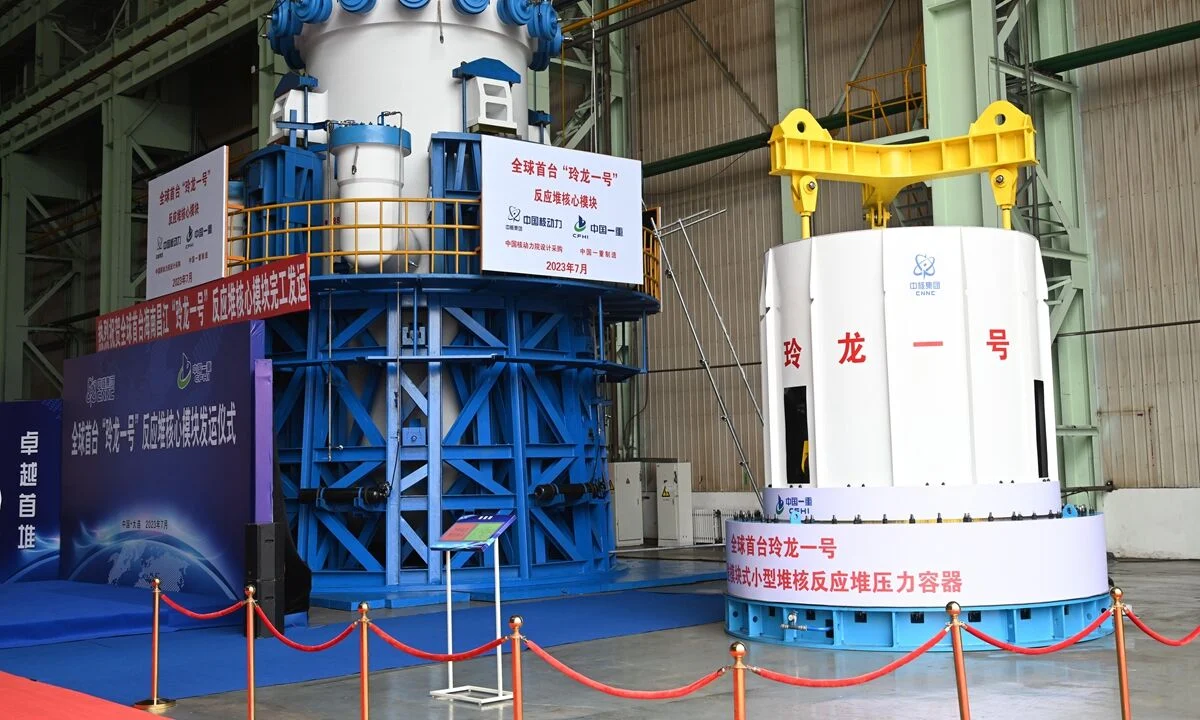In a landmark move aimed at strengthening the country’s energy security and addressing the escalating demand for sustainable power sources, the UK government has unveiled plans to ease regulations surrounding the construction of small nuclear reactors. This strategic shift is designed to hasten the development of small modular reactors (SMRs), a groundbreaking technology that promises to play a pivotal role in the country’s transition to cleaner, low-carbon energy. The accelerated regulatory process is set to pave the way for the rapid deployment of these reactors, signaling a new era of innovation in the nuclear energy sector.
For engineers and project managers in the energy and construction industries, this new policy offers an exciting opportunity to engage in one of the most promising areas of the future energy landscape. SMRs, unlike traditional nuclear reactors, are smaller, more flexible, and significantly more cost-effective to build and operate. These reactors can be deployed in various locations, including remote areas and regions with limited grid infrastructure, making them an ideal solution for providing reliable energy in hard-to-reach places. With the UK government’s regulatory reforms, the path to deploying these advanced reactors has become less cumbersome, allowing for quicker implementation and faster scaling of this vital technology.
Historically, the nuclear power sector has been plagued by lengthy approval processes and stringent regulations, which have slowed down the rollout of new nuclear plants. However, the UK’s new approach aims to streamline this process without compromising on safety. By cutting red tape and reducing the time and cost required to gain regulatory approval, the UK government is enabling the nuclear industry to adopt SMRs at a faster rate. This approach not only helps to address immediate energy needs but also positions the UK at the forefront of the global shift toward cleaner, more sustainable energy production.
The changes to the regulatory framework represent a major shift in how the UK is approaching its energy future. By making it easier for small nuclear reactors to be developed and deployed, the government is signaling its commitment to reducing the country’s carbon footprint while enhancing its energy resilience. Nuclear energy has long been recognized as one of the most efficient and low-carbon sources of power, and with the added flexibility of SMRs, the UK is well-positioned to meet its ambitious climate targets. For engineers, this is an exciting moment to be involved in a field that is poised for rapid growth and transformation.
As small nuclear reactors become more affordable and easier to build, the demand for skilled professionals in the nuclear sector is expected to rise. Engineers with expertise in nuclear technology, construction, and project management will be at the heart of these projects, ensuring that they are executed with precision, safety, and efficiency. This presents an excellent opportunity for those in the engineering profession to develop their skills and contribute to the development of a cleaner energy future. For seasoned professionals, this shift offers the chance to work on some of the most innovative projects in the industry, while for younger engineers, it opens the door to a wealth of new career opportunities.
Moreover, SMRs are designed with advanced safety systems that enhance their reliability and mitigate the risks traditionally associated with nuclear energy. These reactors are built to be safer, more efficient, and more adaptable to changing energy demands, making them an attractive alternative to larger, more complex nuclear plants. As the UK looks to lead the way in the global energy transition, the role of engineers will be critical in ensuring the success of SMR projects. The need for highly skilled professionals who can navigate the challenges of nuclear construction and deployment is greater than ever.
With the easing of regulations, the potential for rapid growth in the SMR sector is clear. Developers and investors are now more likely to commit to SMR projects, confident that they can move forward without the delays and uncertainties of the past. For project managers, this means a greater opportunity to engage in high-impact, high-reward ventures that can contribute significantly to the country’s energy infrastructure. With the increasing interest in SMR technology, the UK is positioning itself to be a global leader in clean energy production, setting an example for other countries to follow.
The move to streamline the approval process for small nuclear reactors is not just about advancing technology; it’s about ensuring that the UK can meet its long-term energy needs in an environmentally responsible way. As the world faces the growing challenges of climate change and energy security, the ability to produce reliable, low-carbon energy will become increasingly important. By supporting the development of SMRs, the UK is taking a significant step toward securing its energy future, while also contributing to the global effort to combat climate change.
For engineers, this represents a rare and exciting opportunity to be part of a transformative shift in the energy sector. By participating in SMR projects, engineers will have the chance to work on cutting-edge technologies that will define the future of energy production. The UK’s commitment to nuclear power and its focus on SMRs is a clear signal that the country is serious about achieving a sustainable, low-carbon energy future. With the regulatory landscape now more favorable than ever, the time is ripe for engineers to step up and play a central role in shaping the future of energy.
In conclusion, the UK government’s decision to ease regulations for the construction of small nuclear reactors marks a defining moment for the country’s energy sector. By facilitating the growth of SMR technology, the government is taking bold steps toward achieving a cleaner, more sustainable energy future. For engineers, project managers, and stakeholders in the energy and construction industries, this is a golden opportunity to contribute to one of the most promising solutions to the world’s energy challenges. With the UK leading the charge, the future of nuclear energy looks brighter than ever, and engineers have the chance to be part of this exciting journey.
Get the latest updates on Energy, Construction, Engineering, and Cryptocurrency. Join us on WhatsApp or Telegram for real-time news. Have a report or article? Send it to report@epci.ng.
Follow us on X (Twitter), Instagram, LinkedIn, and Facebook for more industry insights.







Leave feedback about this